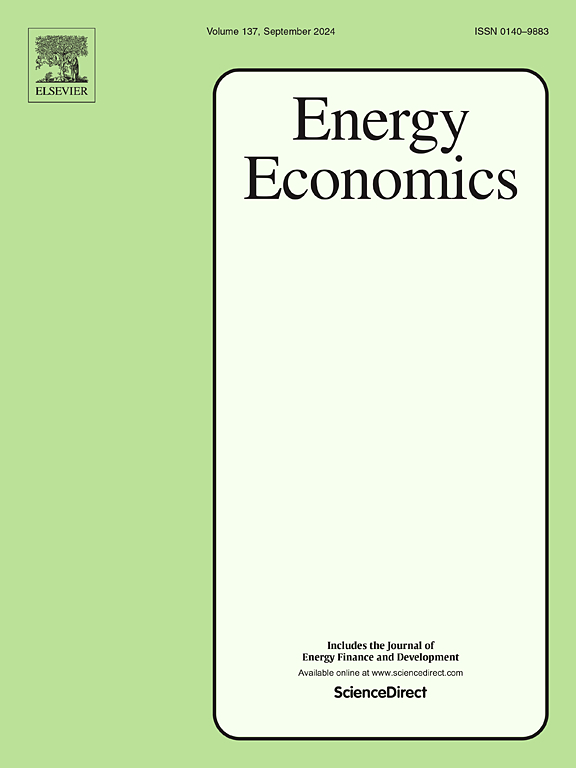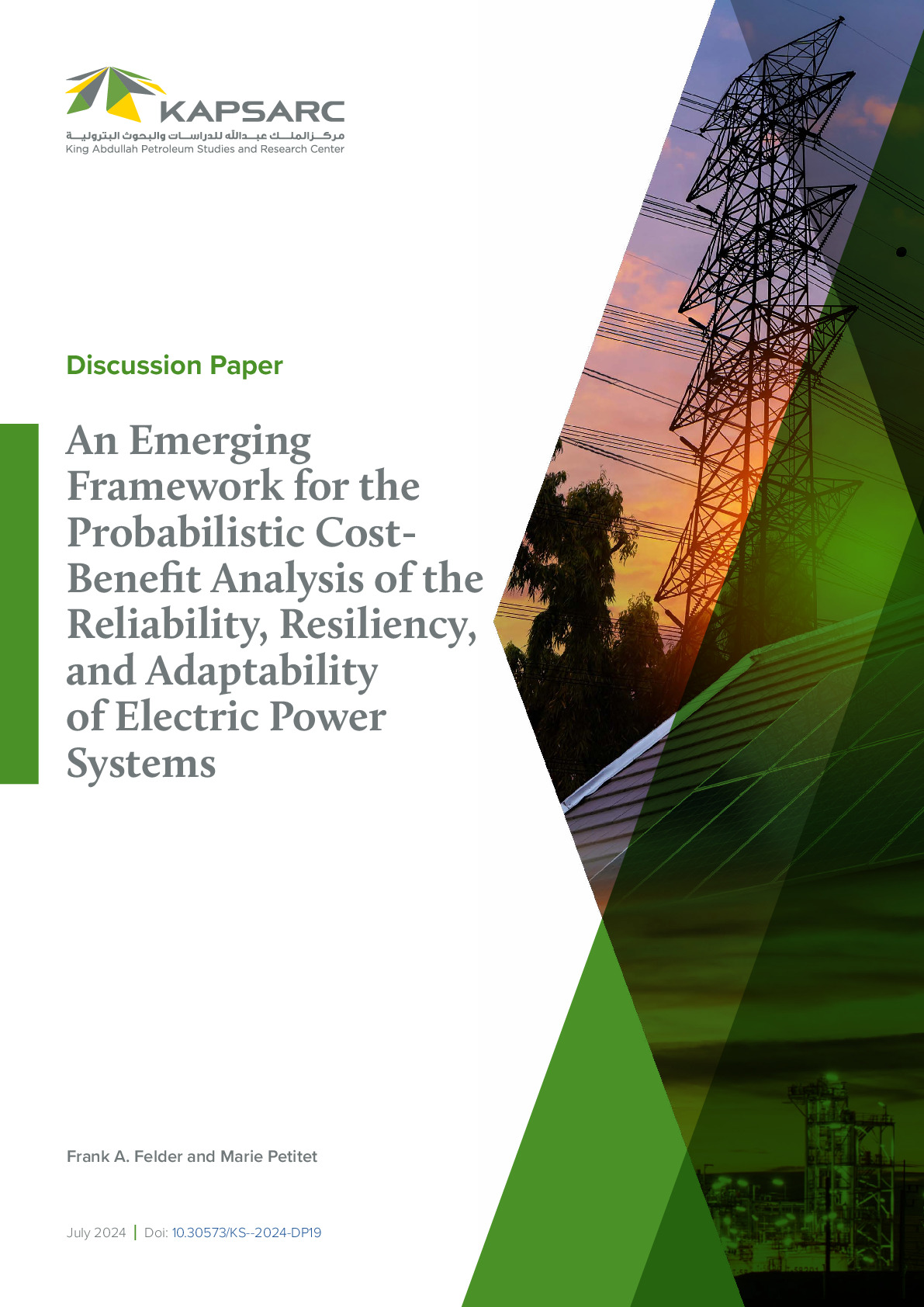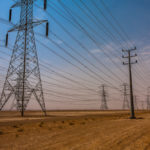The undergoing energy transition relies heavily on the deployment of renewables such as solar photovoltaic (PV) and wind power for the generation of electricity. These variable and intermittent resources would modify power systems’ reliability compared to the situation where electricity is generated by conventional dispatchable power plants. It is also important to accurately capture their contribution to resource adequacy in long-term expansion planning. This discussion paper assesses how varying the firm capacity (FC) and forced outage rate (FOR) assumptions of renewable energy (RE) impact capacity expansion models (CEM). Eight scenarios that vary the FC and FOR, RE share targets, and annual RE uptake were run on a power system model of Saudi Arabia. Assuming a relatively high FC and a relatively low FOR favors renewables (i.e., Optimistic-RE), while the opposite disfavors them (i.e., Pessimistic-RE). Compared with optimistic RE assumptions, the pessimistic RE assumptions result in significant increases in costs, emissions, and battery storage deployment of up to 11%, 17%, and 41%, respectively. However, no observable patterns were found for resource adequacy. Quantifying the extent to which FC and FOR of RE technologies, which are considered heavily weather-dependent, impact investments in the power sector provides valuable insights for policymakers as the world moves forward more aggressively with RE deployment to reduce emissions and combat climate change.

Executive Director- Utilities & Renewables
Dr. Elshurafa is the Executive Director of the Utilities and Renewables Department and possesses 20+ years of experience garnered on…
Dr. Elshurafa is the Executive Director of the Utilities and Renewables Department and possesses 20+ years of experience garnered on three continents. His research interests lie in renewable energy policy, electricity market design and regulation, and power systems modeling. He has led and executed several national modeling initiatives at distributed and utility scales. Some aspects of his research have been adopted by BP in their seminal annual Statistical Review. He is listed among the top 2% scientists globally as per Stanford, and he is a board member of the Saudi Water and Electricity Regulatory Authority. Credited with 50+ papers and patents, he holds a Ph.D. in Engineering and an MBA in Finance.
Expertise
- Renewable Energy Policy
- Electricity Market Design and Regulation
- Power Sector Modeling
Publications See all Amro Elshurafa’s publications
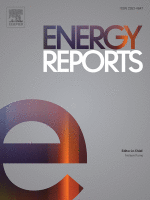
Strategic Priorities and Cost Considerations for Decarbonizing Electricity Generation Using CCS and Nuclear Energy
The undergoing energy transition relies heavily on the deployment of renewables such as solar photovoltaic…
26th August 2024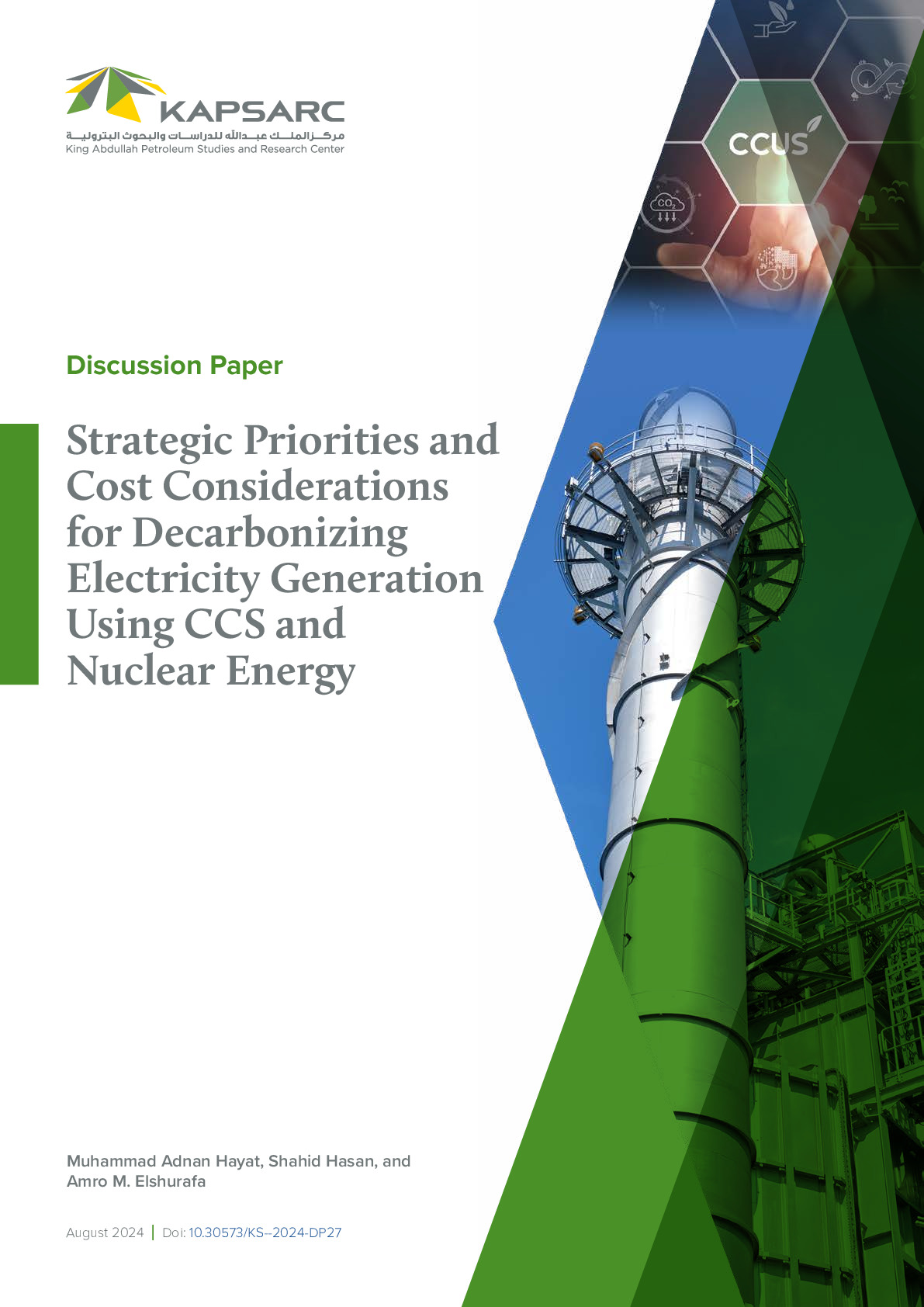
Strategic Priorities and Cost Considerations for Decarbonizing Electricity Generation Using CCS and Nuclear Energy
The undergoing energy transition relies heavily on the deployment of renewables such as solar photovoltaic…
25th August 2024

